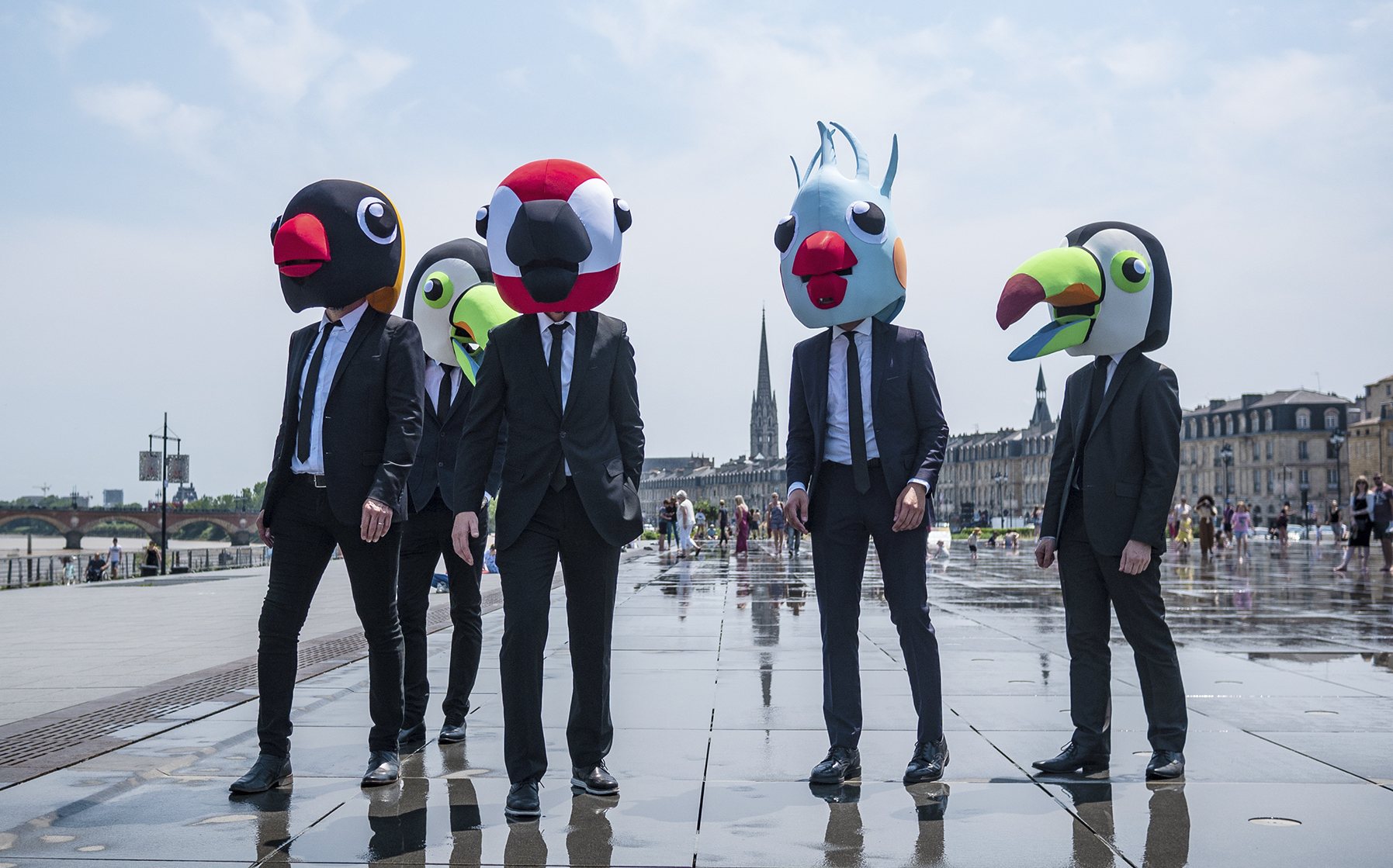Artificial Intelligence: Inria shares its expertise with the start-up gloo
Date:
Changed on 19/07/2021

Do you ever dream of planning gatherings with friends “in real life” without the endless Doodle surveys and/or WhatsApp discussions? That’s exactly what the gloo app (think “glue”) can offer you. It can be downloaded for free using App Market (for Android smartphones) and App Store (for iPhones). The app was developed by a Gironde-based start-up of the same name (with seven employees), co-founded in 2017 by British-Irish entrepreneur Aidan O’Brien.
More like a concierge service than a typical social network, the app was created for very close circles of friends between the ages of 20 and 45 who want to quickly find a time and place to meet, and an activity that appeals to the majority (lunch at an outdoor café, lounging on the banks of the Garonne). It can also identify contacts who are nearby, suggest a gathering to some of them, then view and choose an appropriate meeting place based on each person’s location and preferences.
After reading an article about gloo in the newsletter published by the Village by CA incubator run by Crédit Agricole, Émilie Pons, a business manager for inriaTech, contacted Aidan O’Brien to find out more. The meeting soon led to a research partnership with the Flowers project team, which specialises in developmental machine learning, a research field that seeks to create links between machine learning and developmental sciences.
The goal of the collaboration was to identify new ways of using artificial intelligence to study group behaviour. The founder says:
There are already a lot of cases of AI being used to offer relevant personal recommendations. But much less research is available on the behaviour of social groups and the influence of individuals within these groups. For example, for each group of friends, we want to be able to identify the key person to count on, based on that individual’s popularity, influence, and ability to help reach a compromise.
What’s in it for Inria? “The choice to collaborate, or not, with a local start-up depends on whether its projects are compatible with our ongoing research,” explains Dan Dutartre, a software development engineer with the Integration and Development Department (SED) at the Inria Bordeaux - Sud-Ouest centre who is closely involved in the support scheme for the start-up.
“We have the founders of the start-up meet with researchers from our project teams to check whether there is any value for these researchers to focus on the research issues identified by the entrepreneurs.” If possible, the collaboration then aims to find solutions to the problems raised. Aidan O'Brien points out that entrepreneurs should realise that Inria’s contributions are not like those of a digital service company working to fulfil an order:
Image

Verbatim
Research is a gamble, sometimes it results in innovation and value creation, but not always.
Auteur
Poste
founder
In this case, the collaboration proved to be fruitful, agile, and scalable, resulting in the proposal of several algorithms that were likely to improve the operation of the application, while also allowing the centre to create closer connections with the start-up ecosystem in Gironde. “We started by working on a topic that is currently very popular in the artificial intelligence field–the use of reinforcement learning algorithms–which involves learning from experiences to achieve an objective more effectively,” says Clément Moulin-Frier, a researcher with the Flowers team. “Our research focused on a multi-agent version of these algorithms (applicable to a population of several interacting agents) that would provide insights into collective behaviour patterns based on experience.”
After this first research phase, in concertation with gloo, the focus of the research shifted to recommendation algorithms for groups.
This time, the aim was to understand group dynamics, for example by seeking to identify choices that can be explained by one or several users’ preferences, or those resulting from the influence of a given individual
the research says. The final, more recent, research phase then sought to “find methods that could measure each participant’s level of influence.” The evidence shows that in a given group there is always one person who will take initiative and seek to find a compromise.
From an ethical perspective, gloo–which receives support from the Nouvelle Aquitaine region and Bpifrance–says that it recognises the inherent risks in personal data extraction and analysis. “We never share our users’ specific geolocation data, unlike the current practices of other networks. We only indicate whether the person is nearby,” Aidan O'Brien says.
Their business model is not based on in-app advertising (it’s ad-free) and thus the amount of time spent on gloo. Instead, it relies on the creation of an integrated payment system, which will soon be launched in partnership with Natixis and Visa. “Users will be able to pay the bill with their virtual gloo card and immediately request payment from their friends for their share,” the founder says. This eliminates the nuisance of complicated calculations to share the costs. And why not have some fun too? Users will be able to participate in a game that gives them chances to win a free meal from gloo.
Titre
Other start-ups supported by Inria Bordeaux Sud-Ouest:
Inria projects on AI
The national AI programme: